Police have voiced anger at the government for making enforcing coronavirus restrictions “almost impossible” with mixed messages over easing the lockdown.
Representatives called for clarity amid widespread confusion. The government has been forced to correct even senior ministers over when people should return to work and whether they can meet relatives and friends in parks.
The situation has also been worsened by differences between the rules in England, Wales and Scotland.
Download the new Independent Premium app
Sharing the full story, not just the headlines
John Apter, chair of the Police Federation of England and Wales, said the gaps would “add massive confusion for the public”.
“Policing this crisis has been tough, a lack of clarity and mixed messages has made that even harder,” he added.
“If we fail to get clear and unambiguous guidance policing this crisis will become almost impossible.”
Only the most senior national police leaders were told about the guidance changes in advance, leaving most officers to rely on Boris Johnson’s announcement and press reports.
The government was forced to issue a swift correction when Dominic Raab advised the public to break the law on Monday morning.
The foreign secretary said: “If you’re out in the park and you’re two metres apart, we’re saying now, and use some common sense and you socially distance, you can meet up with other people.”
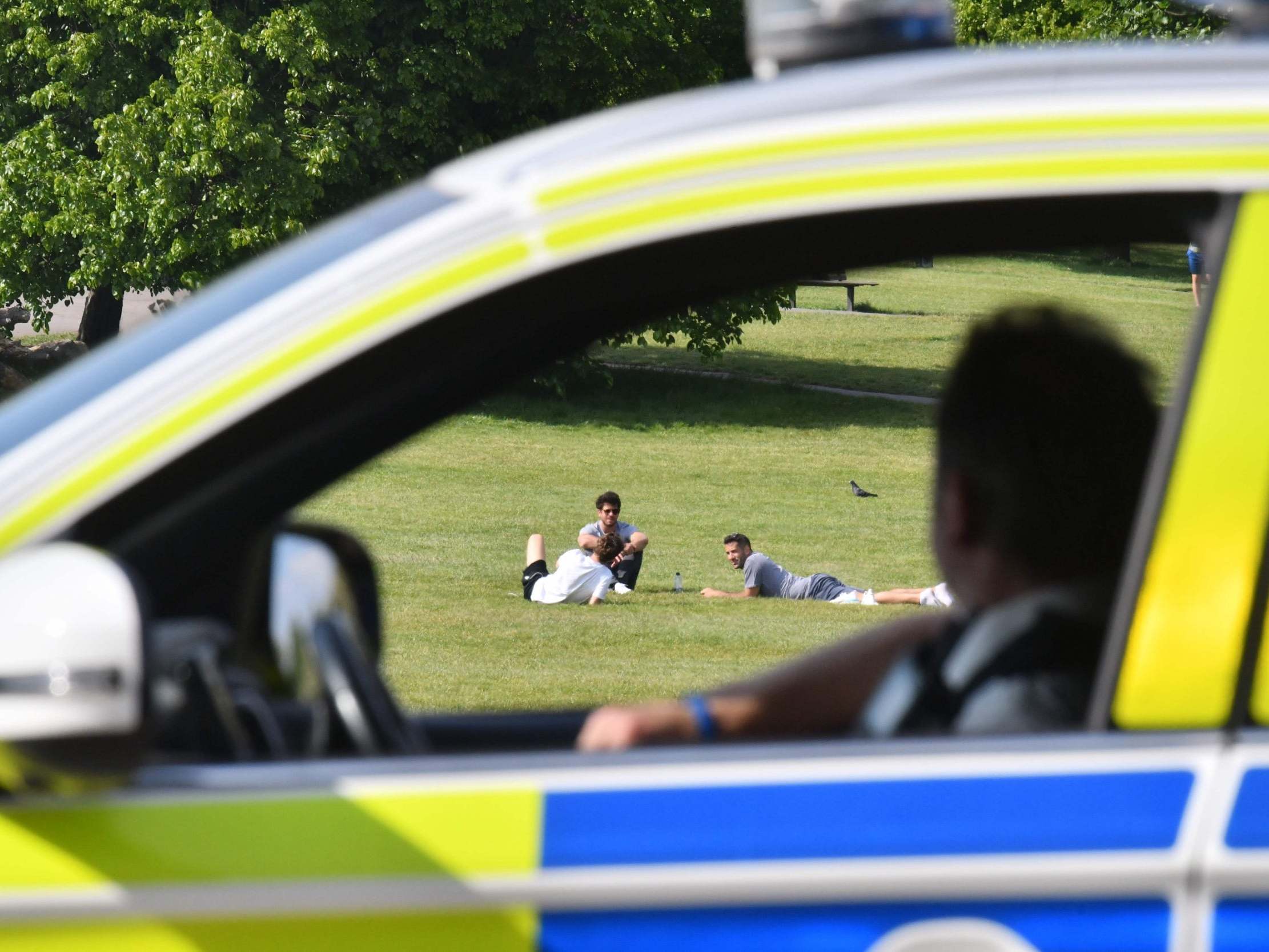
But the Health Protection Regulations state that “no person may participate in a gathering in a public place of more than two people”.
The latest news on Brexit, politics and beyond direct to your inbox
There are exceptions, such as if people are working, exercising with members of their household or attending a funeral, but Mr Raab was discussing social meetings with people from different households.
The Health Protection Regulations give police the power to arrest or fine people for breaking the law, but will not be updated to take the government’s new guidance into account until Wednesday.
That means that gatherings of more than two people in public and being outside “without reasonable excuse” are still illegal.
The ban was widely disregarded over the bank holiday weekend, when hot and sunny weather saw people picnicking with friends in parks.
Some celebrations held to mark the VE day anniversary also sparked concern, as people appeared to be violating social distancing rules.
Days before, several newspapers had reported that the government planned to ease the lockdown on Monday but few of the changes detailed on the front pages came to pass in Mr Johnson’s announcement.
Mr Apter said mixed messages from the government’s release of partial information “fuelled by media speculation, meant many people acted as though the lockdown had already ended”.
“This is putting extreme pressure on my colleagues who are on the frontline trying to enforce legislation in these most challenging of times,” he added.
“What we need from the prime minister and the government now is clear and unambiguous messaging and guidance, explaining what exactly is expected of the public, so that my colleagues can do their level best to police it.
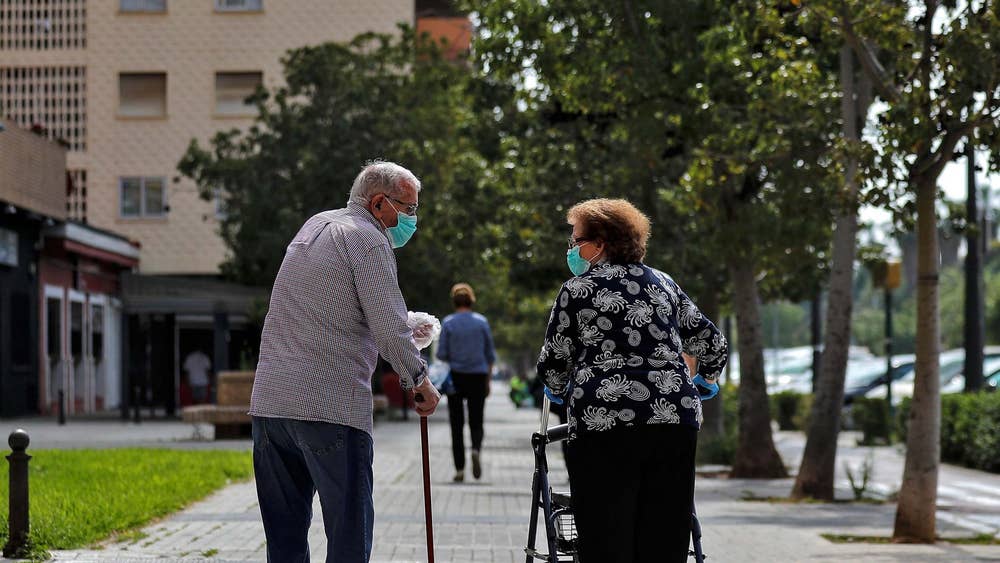
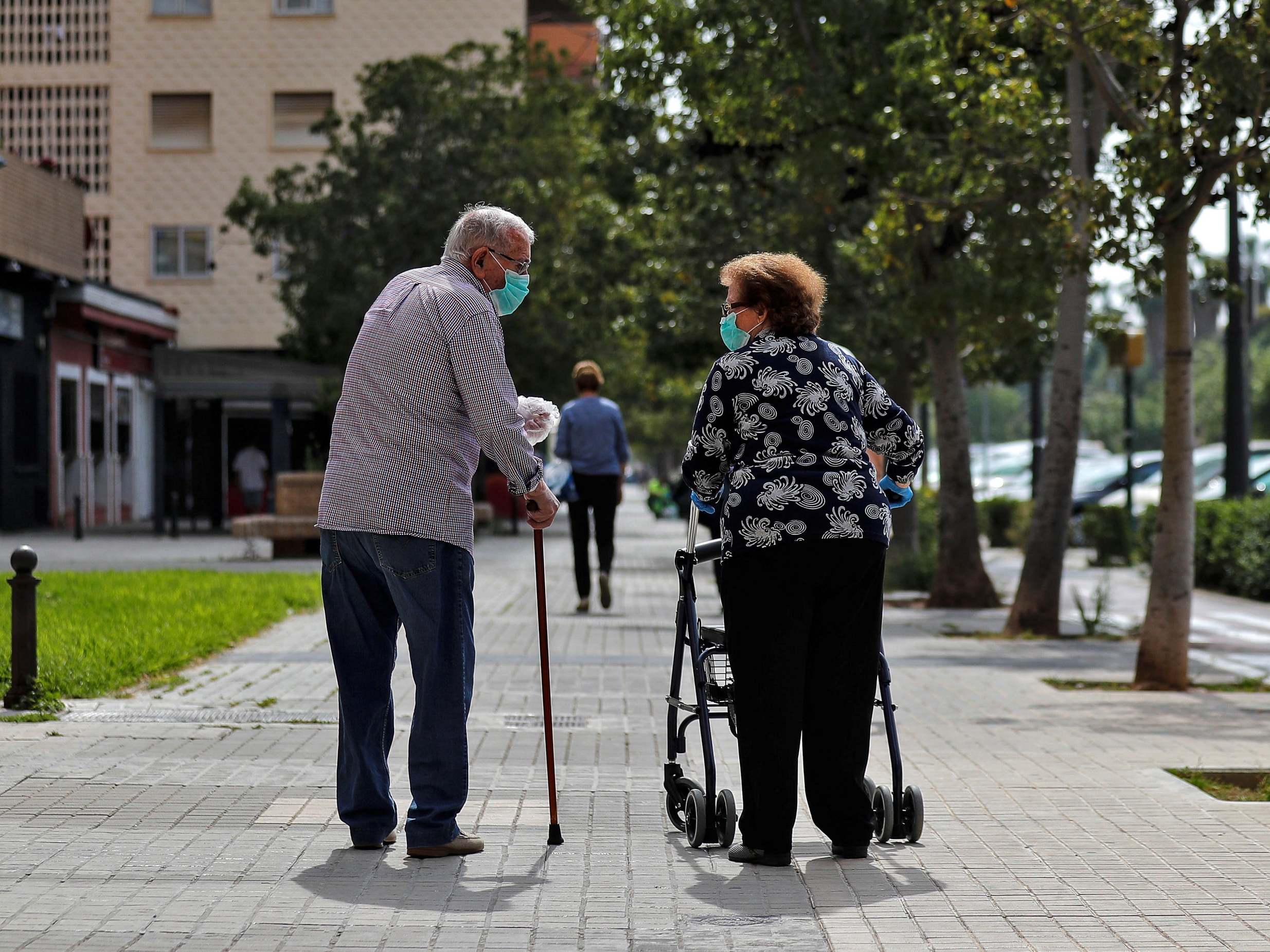
1/19
Two elderly people chat on a street in Valencia, Spain on 4 May
EPA
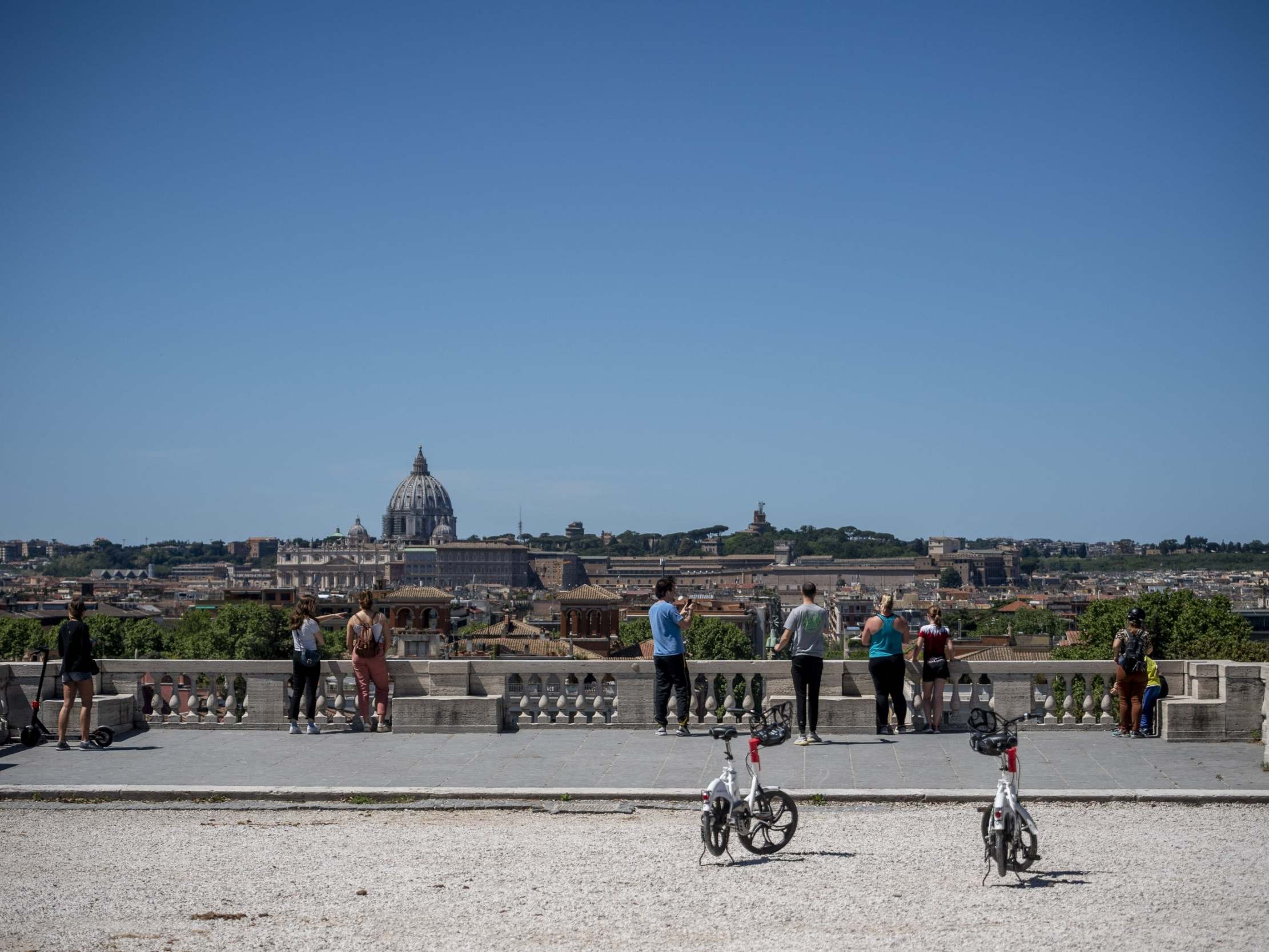
2/19
People look at the city from Villa Borghese park in Rome during the first day of Italy’s next phase in its coronavirus lockdown
Getty Images
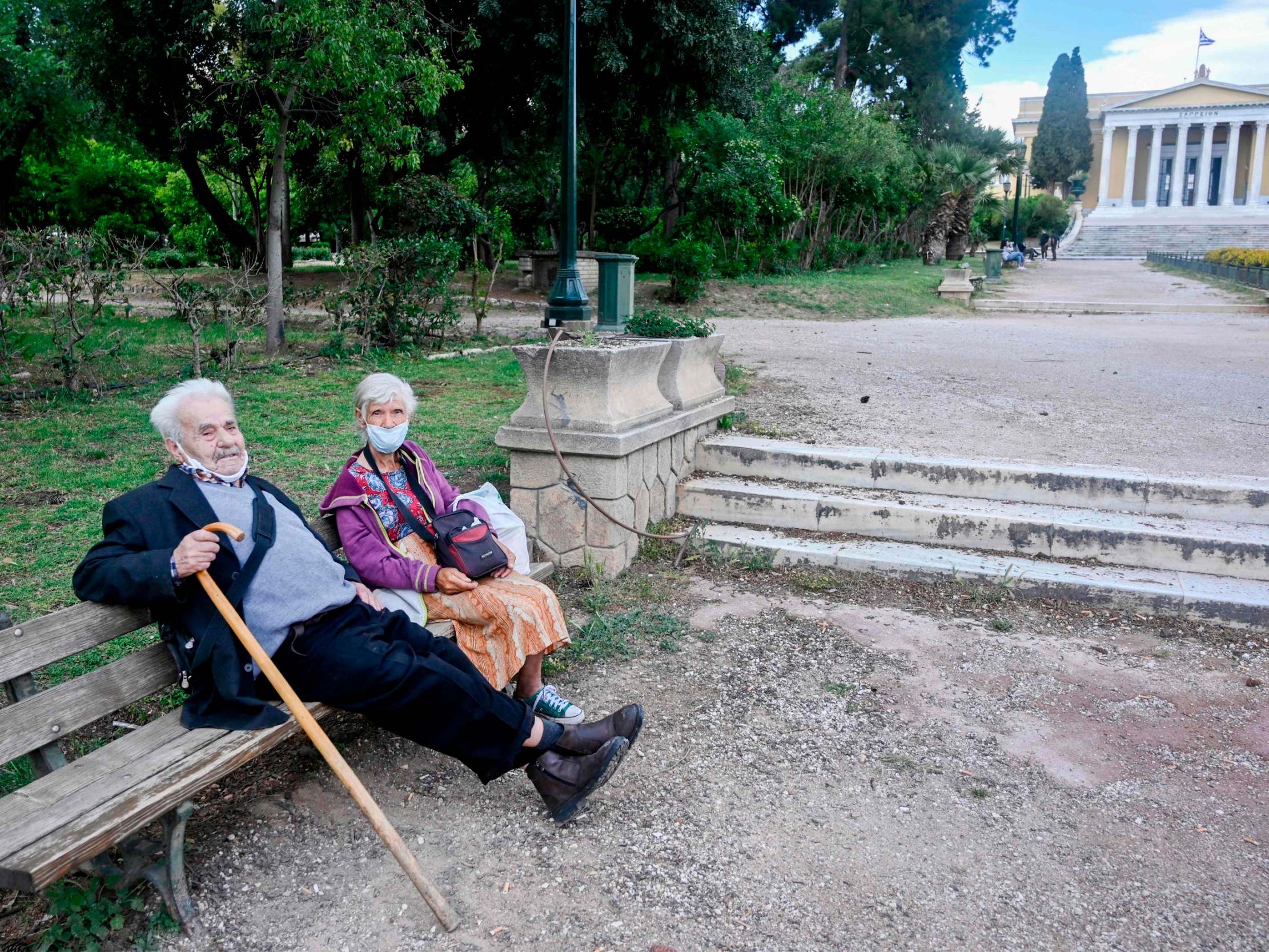
3/19
An elderly couple who has not been outside for nearly two months enjoys the weather as they sit on a bench in a park in Athens on 4 May
AFP via Getty Images
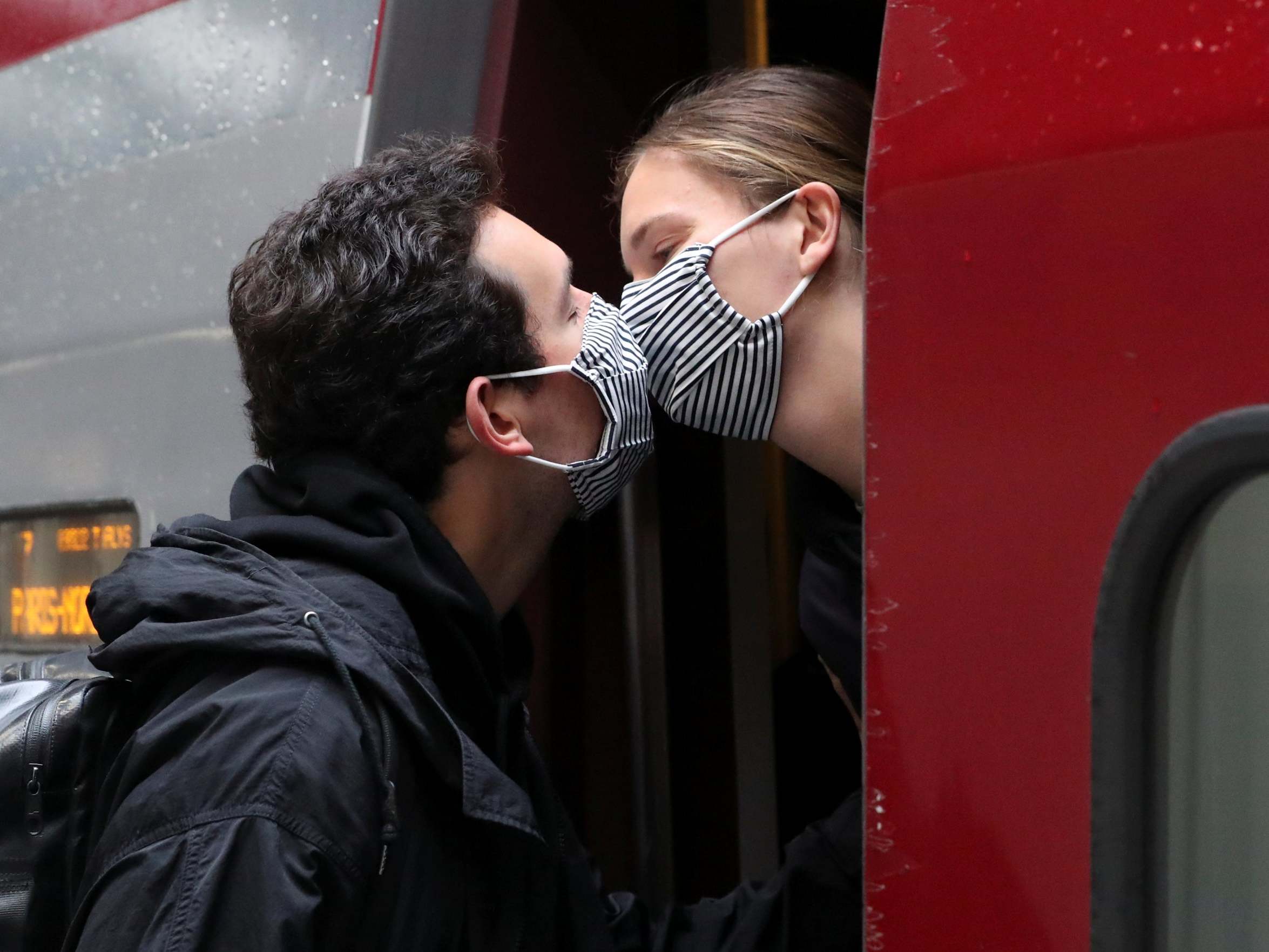
4/19
Henri de Chassey, wearing a protective face mask, kisses his partner Margaux Rebois, who is returning to Paris after spending two months in Brussels on 4 May
REUTERS
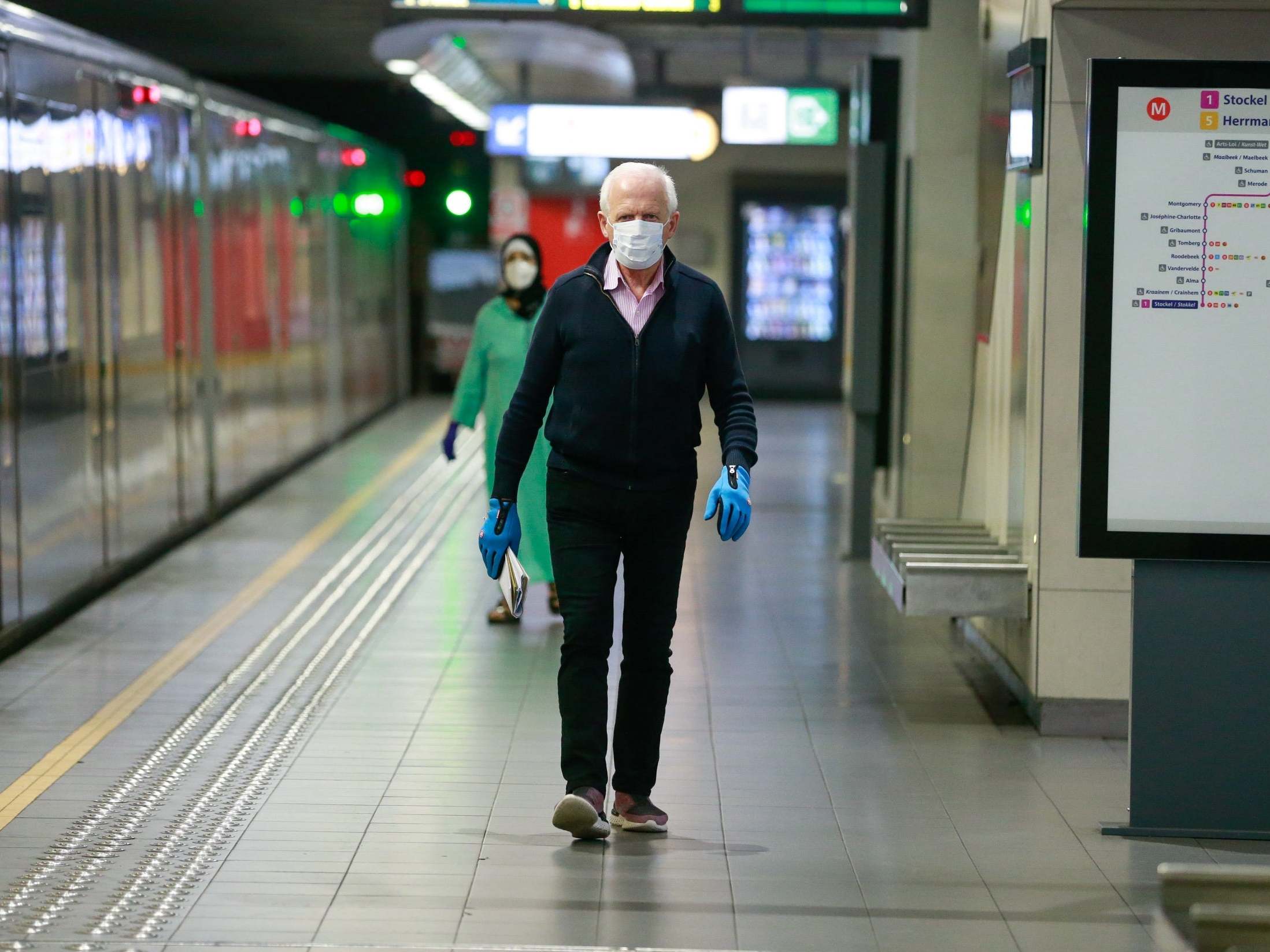
5/19
A commuter in protective mask wears gloves at an underground station in Brussels as some companies are allowed to bring workers back to the office
EPA/STEPHANIE LECOCQ

6/19
Paralympic swimmer Inigo Llopis prepares to swim in San Sebastian, Spain, for the first time since the lockdown began
Getty Images
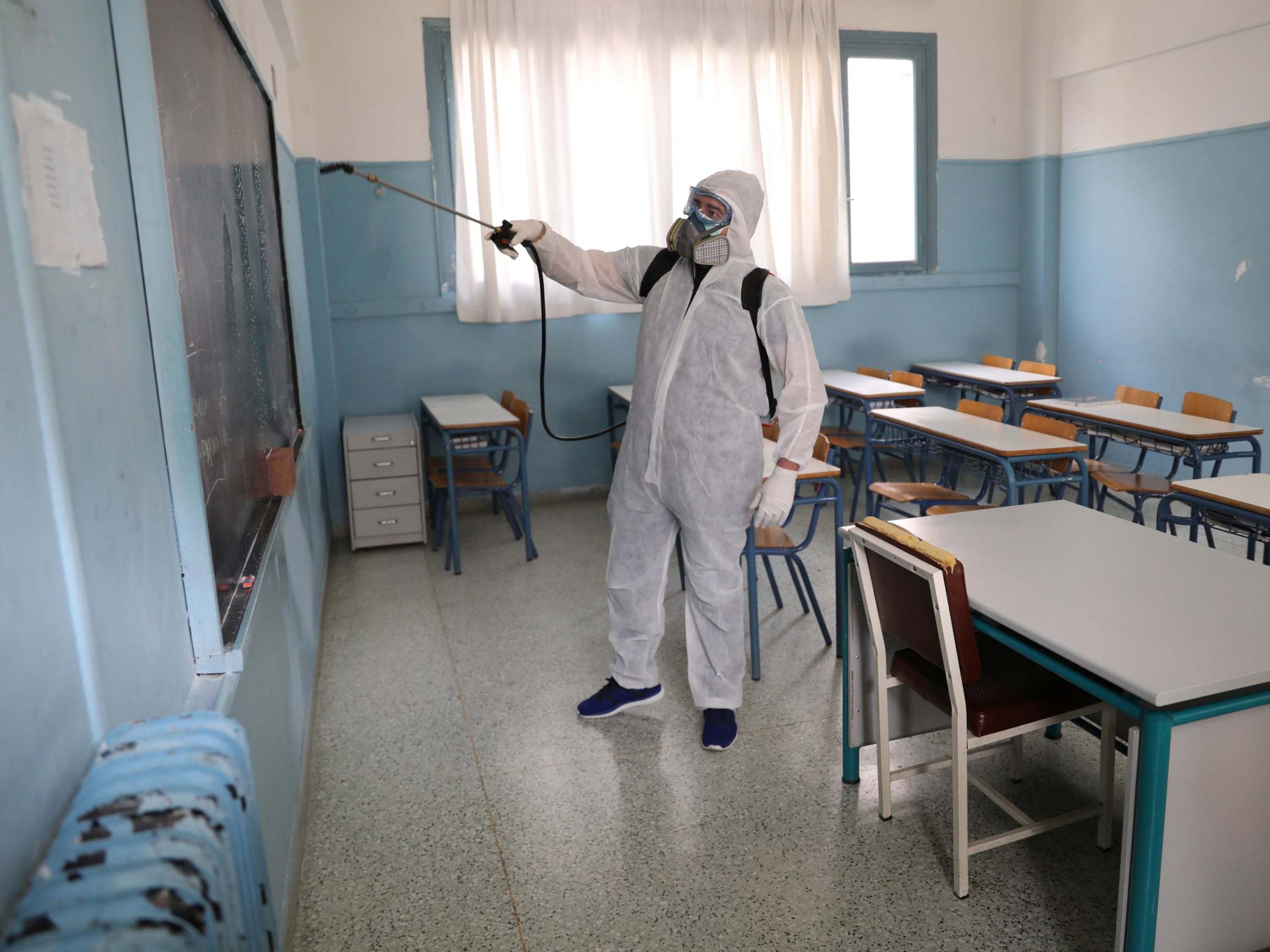
7/19
A worker wearing personal protective equipment disinfects a school in Athens as Greece relaxes its nationwide lockdown
REUTERS
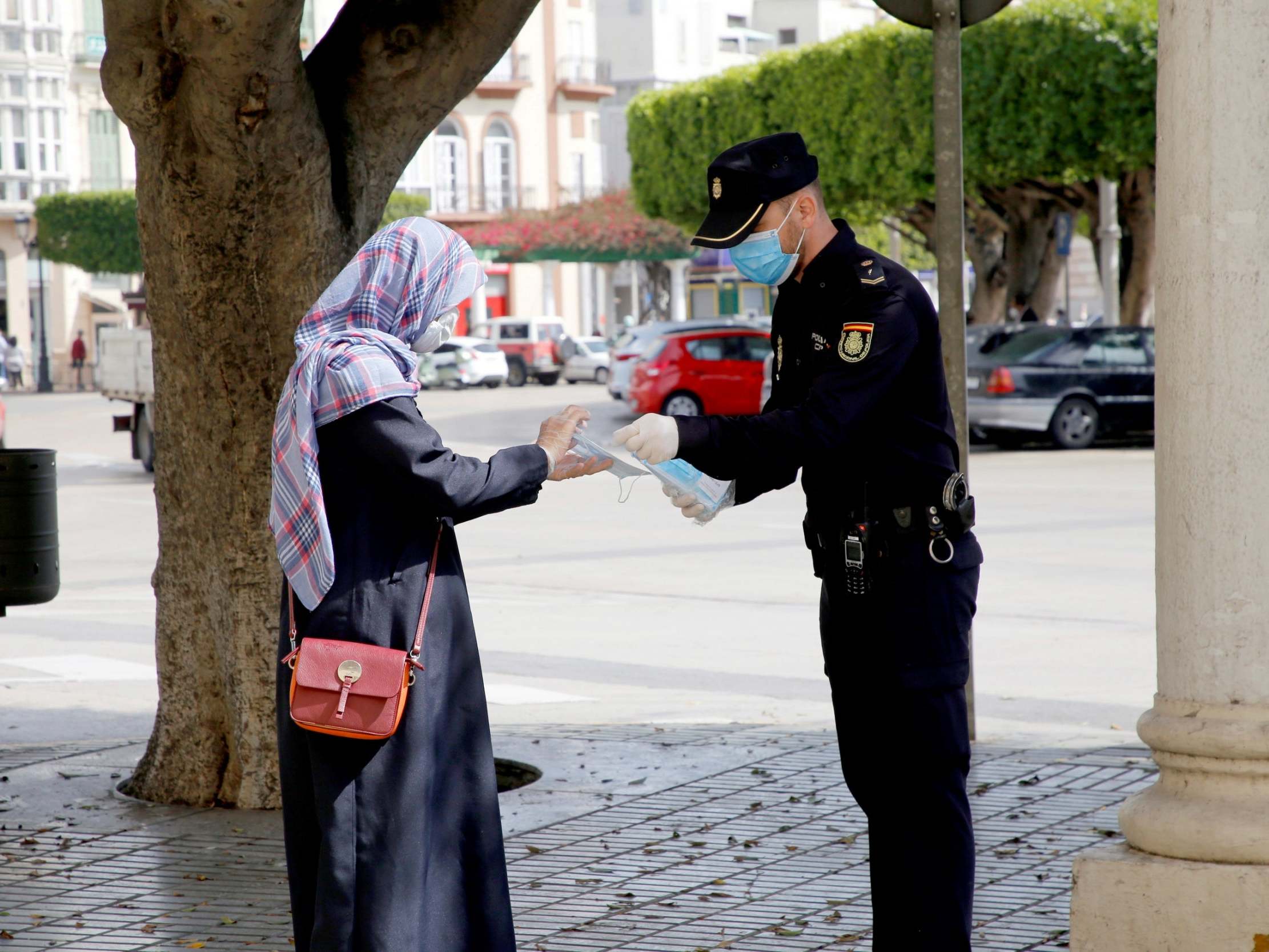
8/19
A Spanish National Police officer distributes protective masks in Melilla, Spain, on 4 May
EPA
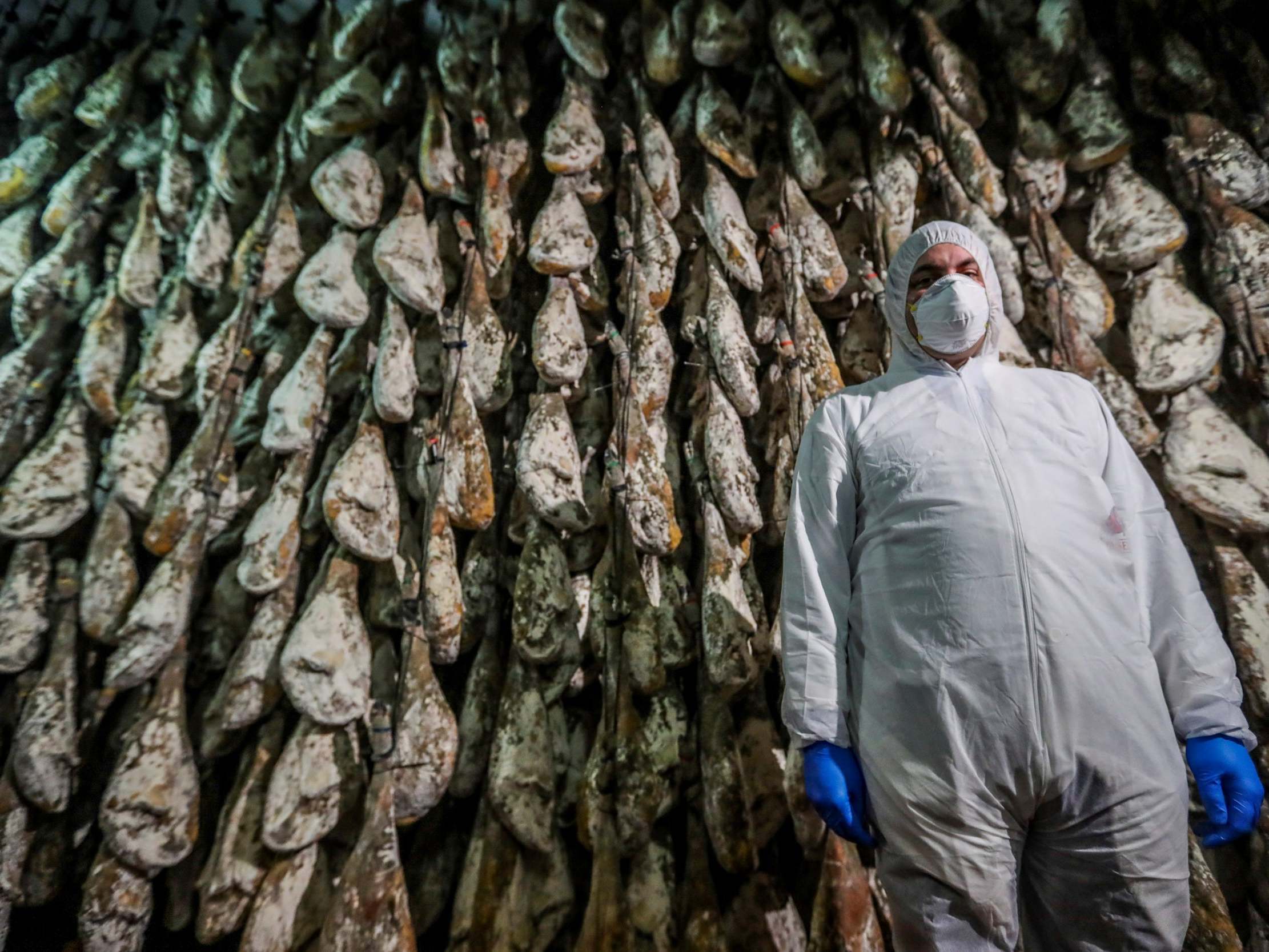
9/19
An employee poses in front of halfway-cured hams in a factory in Guijuelo, Salamanca, Spain, on 4 May
EPA
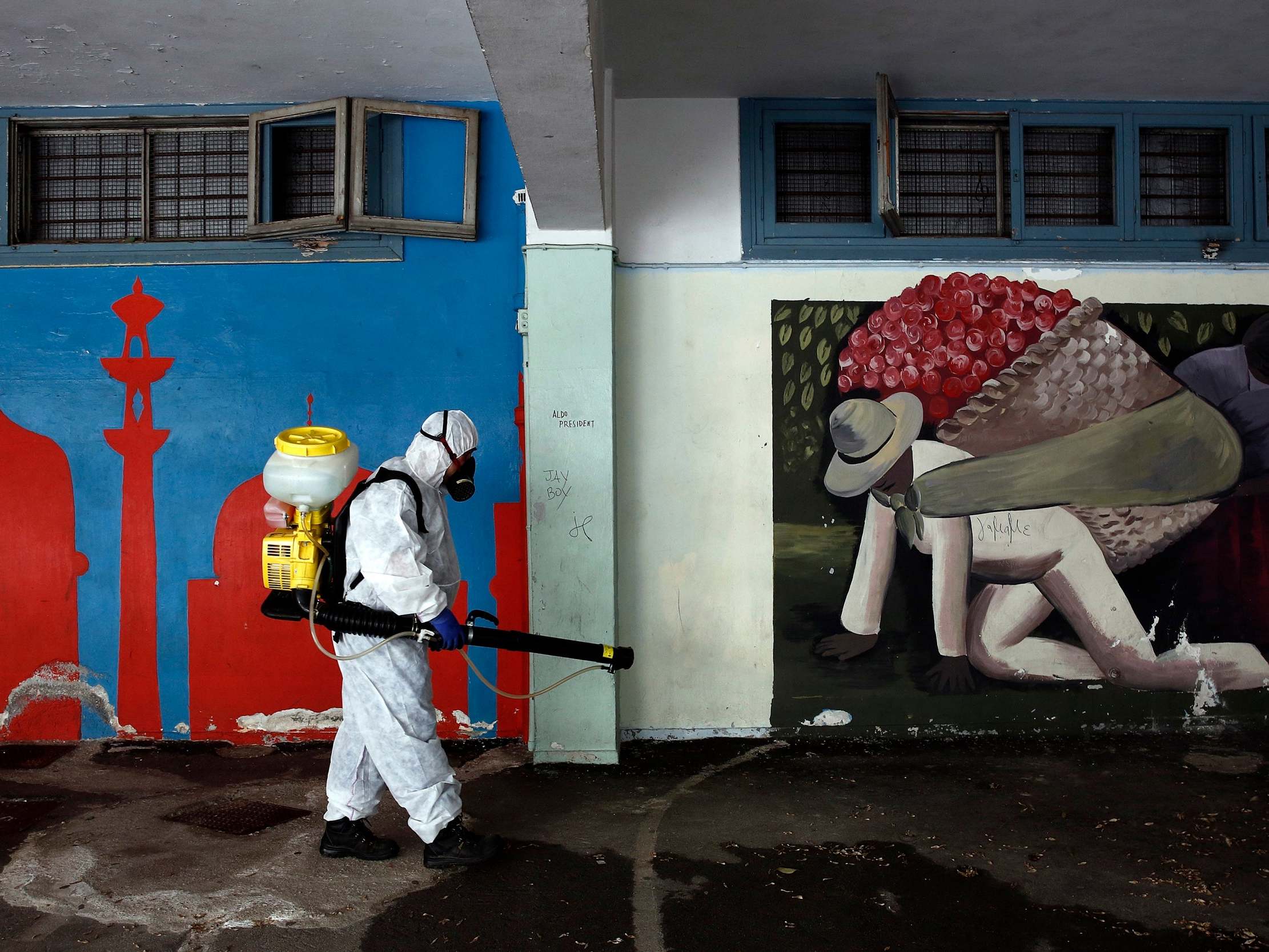
10/19
Workers in protective suits disinfect a high school in Athens as Greece moves to reopen schools for final-year students on 11 May
EPA
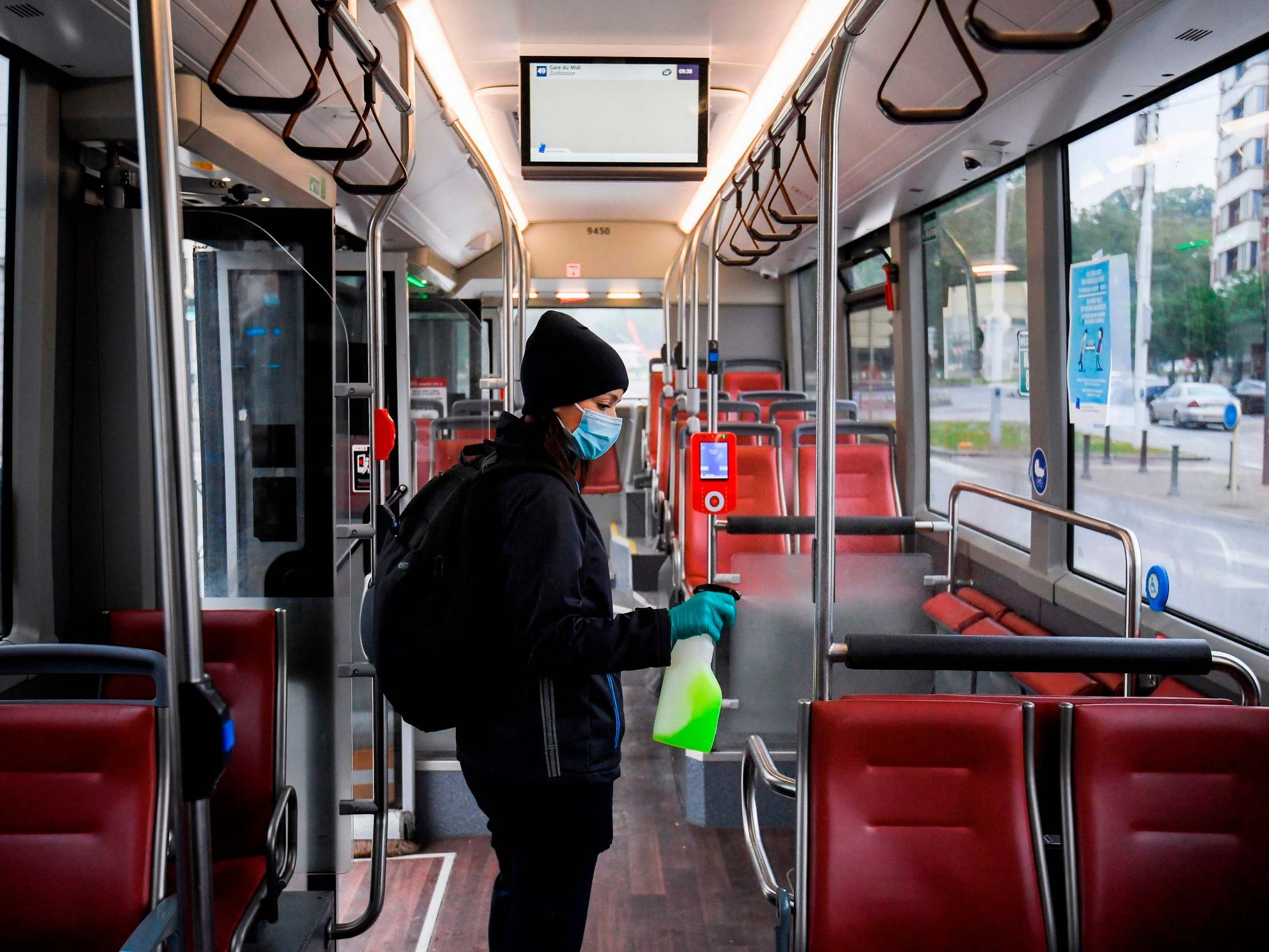
11/19
A worker disinfects a bus as transport vehicles are disinfected several times a day as part of Belgium’s lockdown exit strategy
Belga/AFP via Getty Images

12/19
A worker from Textilia haberdashery in Brussels holds a fabric that can be used to make customised protective face masks as Belgium relaxes its lockdown measures
REUTERS/Yves Herman
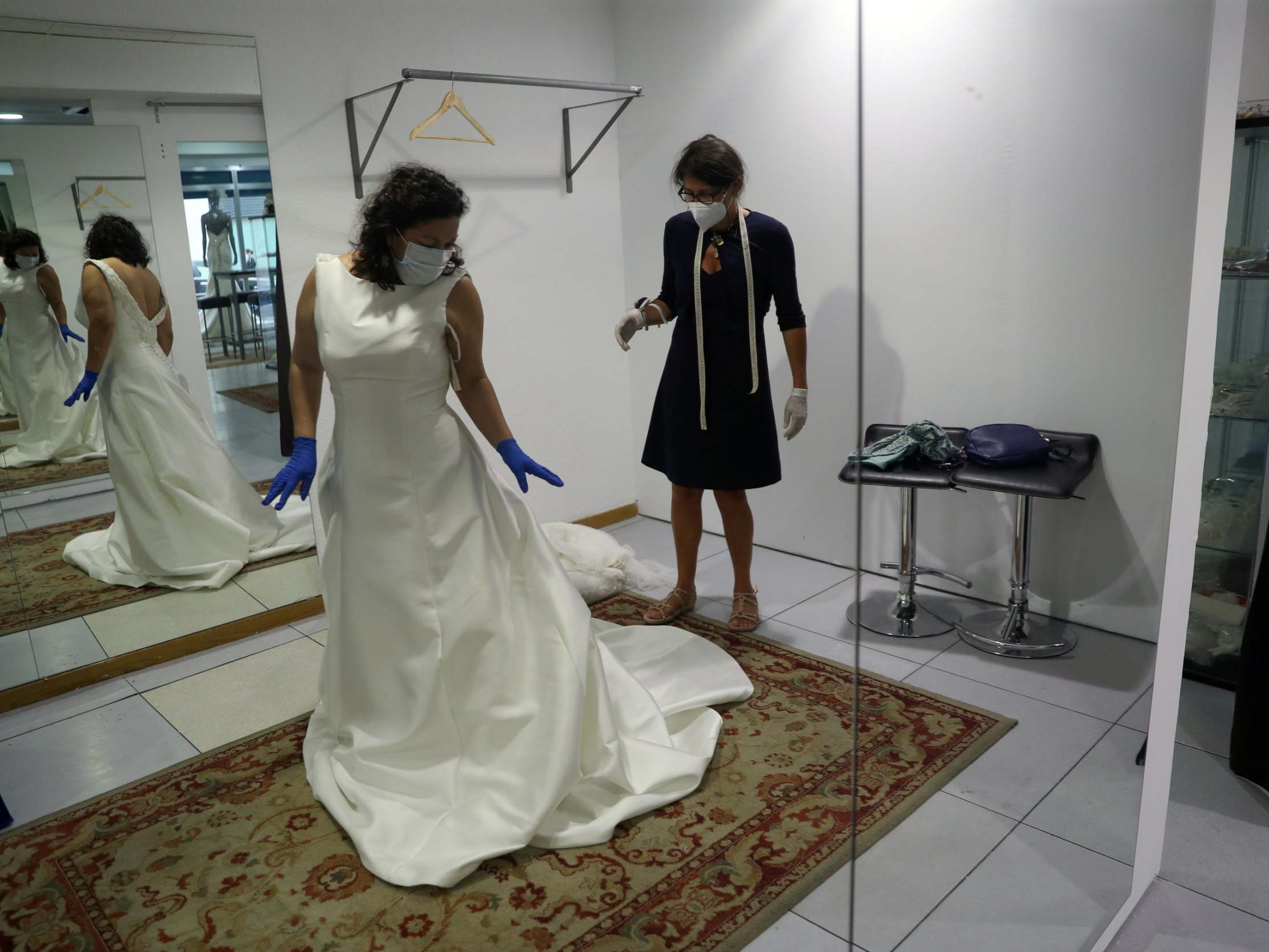
13/19
A bride tries on a wedding dress at a bridal shop in Madrid on the first day that some small businesses are allowed to open during Spain’s lockdown
REUTERS

14/19
People walk across the Galleria Vittorio Emanuele II shopping mall in central Milan as Italy eases its lockdown
AFP via Getty Images

15/19
A couple kiss in the Duomo Square in Catania as Italy starts moving out of its lockdown
Reuters
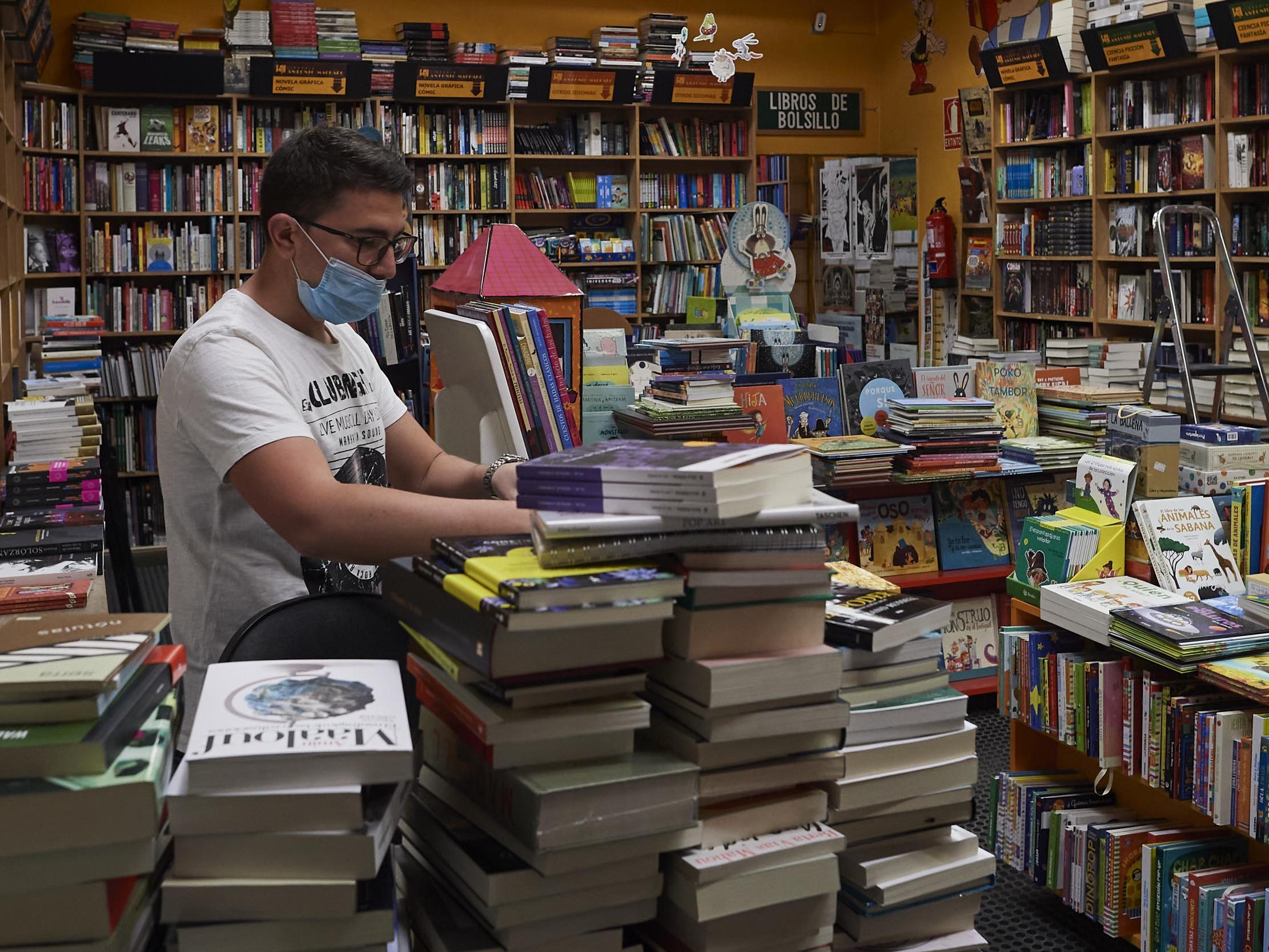
16/19
Mirel Chetan organises the books of the Antonio Machado bookstore in Madrid after 51 days of closure
Carlos Alvarez/Getty Images
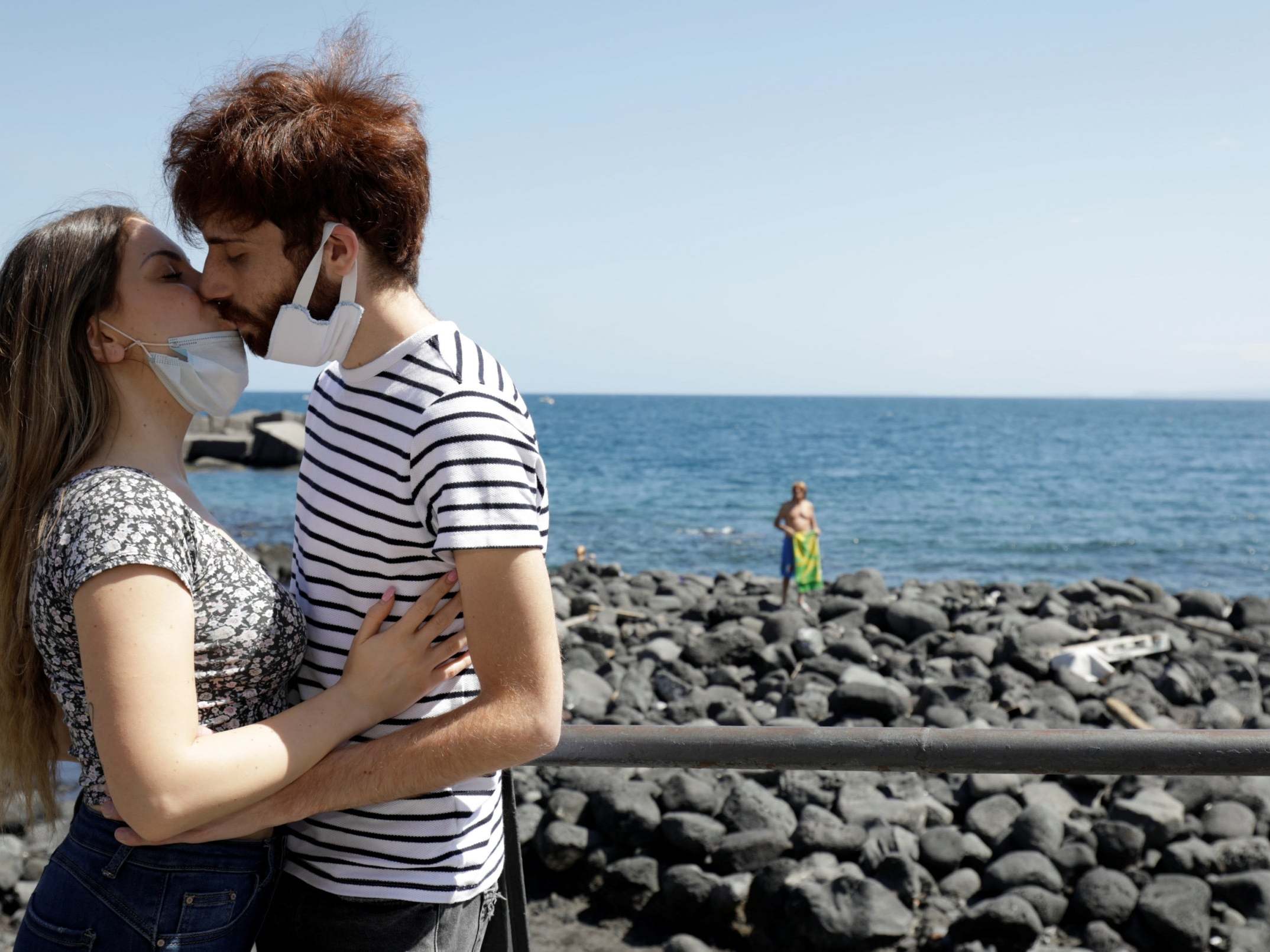
17/19
A couple kiss in front of the sea in Catania as Italy begins a staged end to a nationwide lockdown due to the spread of the coronavirus disease
ANTONIO PARRINELLO/ REUTERS
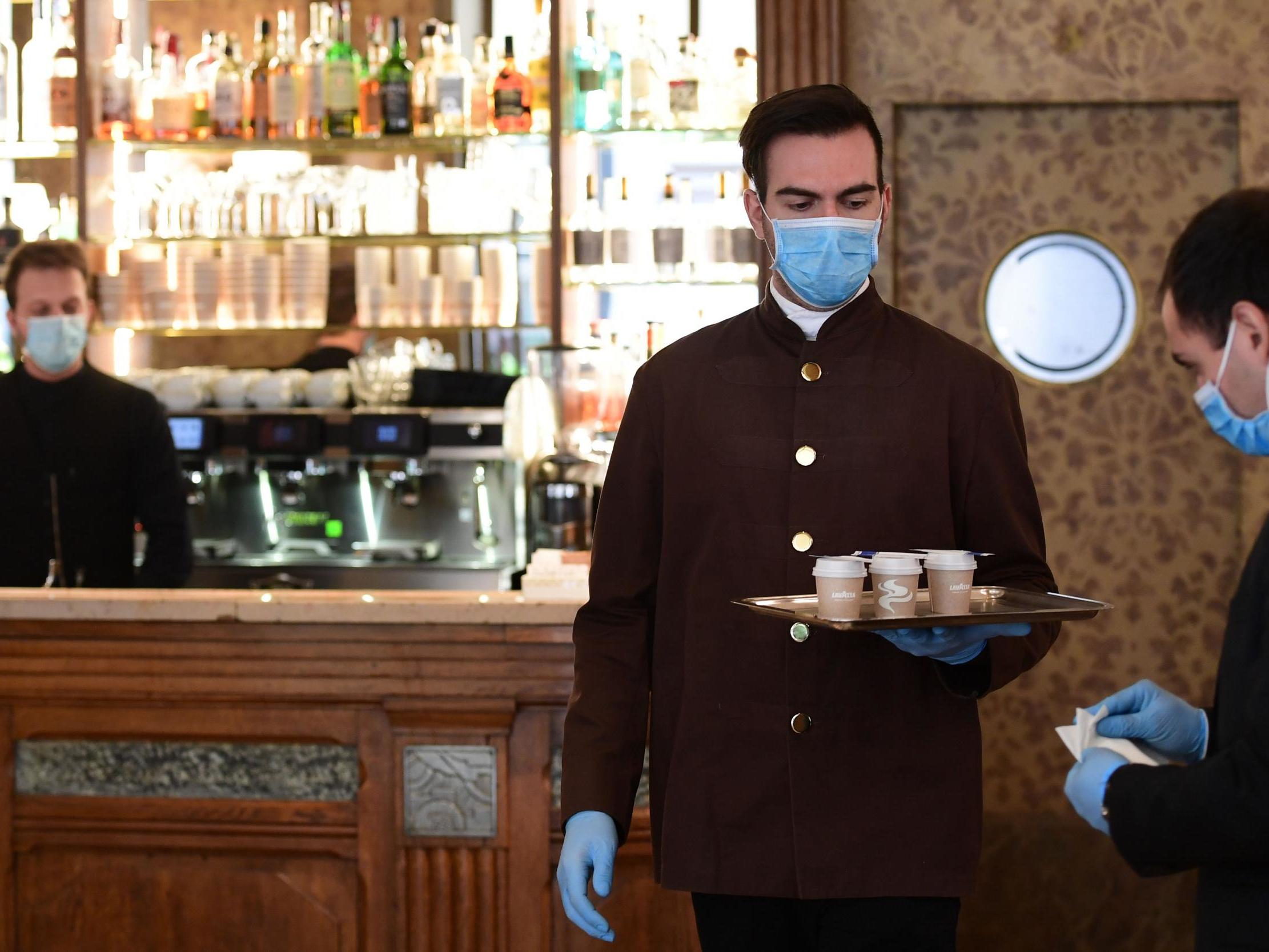
18/19
A waiter at Caffe Cracco handles takeaway coffee in Milan on 4 May as Italy starts to ease its lockdown
Miguel Medina/AFP via Getty Images

19/19
A woman holds a yoga posture as she exercises by the Colosseum monument in Rome on the first day of Italy relaxing its lockdown measures
VINCENZO PINTO/AFP via Getty Images

1/19
Two elderly people chat on a street in Valencia, Spain on 4 May
EPA

2/19
People look at the city from Villa Borghese park in Rome during the first day of Italy’s next phase in its coronavirus lockdown
Getty Images

3/19
An elderly couple who has not been outside for nearly two months enjoys the weather as they sit on a bench in a park in Athens on 4 May
AFP via Getty Images

4/19
Henri de Chassey, wearing a protective face mask, kisses his partner Margaux Rebois, who is returning to Paris after spending two months in Brussels on 4 May
REUTERS

5/19
A commuter in protective mask wears gloves at an underground station in Brussels as some companies are allowed to bring workers back to the office
EPA/STEPHANIE LECOCQ

6/19
Paralympic swimmer Inigo Llopis prepares to swim in San Sebastian, Spain, for the first time since the lockdown began
Getty Images

7/19
A worker wearing personal protective equipment disinfects a school in Athens as Greece relaxes its nationwide lockdown
REUTERS

8/19
A Spanish National Police officer distributes protective masks in Melilla, Spain, on 4 May
EPA

9/19
An employee poses in front of halfway-cured hams in a factory in Guijuelo, Salamanca, Spain, on 4 May
EPA

10/19
Workers in protective suits disinfect a high school in Athens as Greece moves to reopen schools for final-year students on 11 May
EPA

11/19
A worker disinfects a bus as transport vehicles are disinfected several times a day as part of Belgium’s lockdown exit strategy
Belga/AFP via Getty Images

12/19
A worker from Textilia haberdashery in Brussels holds a fabric that can be used to make customised protective face masks as Belgium relaxes its lockdown measures
REUTERS/Yves Herman

13/19
A bride tries on a wedding dress at a bridal shop in Madrid on the first day that some small businesses are allowed to open during Spain’s lockdown
REUTERS

14/19
People walk across the Galleria Vittorio Emanuele II shopping mall in central Milan as Italy eases its lockdown
AFP via Getty Images

15/19
A couple kiss in the Duomo Square in Catania as Italy starts moving out of its lockdown
Reuters

16/19
Mirel Chetan organises the books of the Antonio Machado bookstore in Madrid after 51 days of closure
Carlos Alvarez/Getty Images

17/19
A couple kiss in front of the sea in Catania as Italy begins a staged end to a nationwide lockdown due to the spread of the coronavirus disease
ANTONIO PARRINELLO/ REUTERS

18/19
A waiter at Caffe Cracco handles takeaway coffee in Milan on 4 May as Italy starts to ease its lockdown
Miguel Medina/AFP via Getty Images

19/19
A woman holds a yoga posture as she exercises by the Colosseum monument in Rome on the first day of Italy relaxing its lockdown measures
VINCENZO PINTO/AFP via Getty Images
“Police officers will continue to do their best, but their work must be based on crystal clear guidance, not loose rules that are left open to interpretation – because that will be grossly unfair on officers.”
New guidance will be released by the College of Policing on how officers should interpret and apply the changes.
The National Police Chiefs’ Council said it would work to ensure the correct instructions were in place and that “policing by consent will continue to be at the heart of our approach”.
The president of the Police Superintendents’ Association called for “clear and consistent communication with both the public and the police”.
Chief Superintendent Paul Griffiths said: “It is also essential that all sectors play their role in ensuring social distancing, as this cannot fall to policing alone.”
Fines for breaching the Health Protection Regulations are to rise from £60 to £100 in England from Wednesday.
The first offence can be halved to £50 if paid within two weeks, but fines will double for repeat violations to a maximum of £3,200.
It is not yet clear if the same changes to fines will be adopted in Wales but Northern Ireland is expected to set its own rules on Tuesday.
Lockdown fines will remain unchanged in Scotland as its government found no evidence to suggest an increase was required.
MPs and civil liberties groups criticised police for overstepping their previous powers, which were misapplied in several parts of the country.
Human rights group Liberty said the government had now created “more confusion over what we can and can’t do, while facing even greater penalties if we get it wrong”.
Policy and campaigns officer Rosalind Comyn said: “If there is a general easement on the lockdown, the police powers must be reduced – not increased.”



